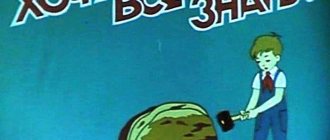Janusz Korczak (real name Henryk Goldszmit) is a famous Polish teacher, doctor, writer, and public figure. He was not a psychologist by training, but if you plunge into the time when Janusz Korczak (1878 - 1942) lived, understand how he lived, what truths he professed and what works he left behind, you come to an unconditional awareness of how much this outstanding figure did to understand the psychology of children. His numerous works about the true values of life and the development of personality, including “The Child’s Right to Respect”, “How to Love a Child” speak for themselves...
The mention of Janusz Korczak is often heard in the context of an educator and Teacher with a capital P, while many people lose sight of the fact that Janusz Korczak began his career as a pediatrician. The life path of this extraordinary personality allows us to understand that the two directions he chose - treatment of children and educational activities - almost all his life went parallel to each other.
Janusz Korczak
Having entered the medical faculty of the University of Warsaw, Janusz began to study the teaching activities and ideas of Pestalozzi. He made study tours throughout Europe to understand the conditions in which children lived in orphanages in different parts of the world. Korczak was interested in education in schools and the health care system in children's hospitals: he listened to lectures, became acquainted with various educational institutions and did internships in children's clinics.
During his time working in children's hospitals, he became imbued with love and respect for the child's soul, drawing attention to “with what dignity, in an adult and wise way a child knows how to die...”. He made it his life's goal to provide destitute and orphaned children with a decent life. Korczak was one of the first to try to take the place of children who were not only offended by fate, but also in humiliated dependence on adults.
Throughout his life, he tried to heal not only the bodies, but also the souls of children.
He does everything possible to protect them from loneliness, despair and pain.
“Know how to love someone else’s child.” Alphabet of Janusz Korczak
If parents, educators, teachers, and everyone who lives in the same world as children read and understood Janusz Korczak, the society around us would definitely become better. Our blogger Oksana Danilyuk collected the most important quotes from the writer.
Useful Mela newsletter twice a week: Tuesday and Friday
SUBSCRIBE
On June 1, we once again celebrated International Children's Day. On this occasion, I decided to remember the words of Janusz Korczak, the world-famous Polish writer, teacher and doctor, who in 1942, along with 200 of his students and colleagues, died in the gas chamber of the Treblinka II extermination camp. He wrote the book “How to Love a Child” in a field hospital under the roar of guns, during the war - it was the First World War. Anyone who reads this book is invariably surprised at how much an adult can be on the side of children.
Janusz Korczak. Drawing by Isaac Belfer, artist and sculptor, student of Janusz Korczak. 2006
A world-famous writer, attentive and sensitive teacher, talented doctor, journalist, public figure and moral authority, Janusz Korczak was born in Warsaw when the city was part of the Russian Empire. Lived a great life. Since childhood, Korczak never parted with books, and then he began to write himself. His real name was Henryk Goldschmit, but once in his youth he took a pseudonym for a competition in a newspaper - the name of the hero from his first book - he remained Janusz Korczak forever.
All his life, he discovered pedagogy to his contemporaries not as an abstract science, but as a living system of understanding and respect for the Human child. “There are no children, there are people” - his words have stood the test of time. A hundred years later, they awaken, convince, expose, touch, make you look closer and think. We have selected the most important quotes from the book “How to Love a Child”, written by the Old Doctor - as children liked to call him.
Janusz Korczak and the pupils of the Orphanage. 1938 Photo: Korczakianum
About children and childhood
There are no children - there are people, but with a different scale of concepts, with a different store of experience, different drives, a different play of feelings. Remember that we don't know them.
All modern education is aimed at making the child comfortable; consistently, step by step, it strives to lull, suppress, destroy everything that is the will and freedom of the child, the fortitude of his spirit, the strength of his demands.
What small victories a child celebrates, already dreaming of long journeys. In his dreams he is Robinson on a deserted island. But in reality, I’m glad when they allow me to look out the window.
Short quotes about children
- In the theater of life, the only real spectators are children. (Vladislav Grzeszczyk)
- Children are a spell of love and time. (Reporter John Krudel)
- A house without children's laughter is as quiet as a grave. (Henny Youngman)
- Children should be taught to laugh, not preached to.
- The relationship between parents and children is mainly based on learning.
- It takes a whole village to raise one child.
- You cannot compare the smile of an innocent child with the intelligence of a thousand men.
- Noble fathers have noble children. (Euripides)
- You can't buy a child's smile, even if you have millions in your pocket.
- A happy child is worth more than all the money in the world.
- Childhood is incurable. (Pythagoras)
- It sometimes takes years for children and parents to meet face to face. (Mark Levy)
- Childhood is a promise that never comes true. (Ken Hill)
- One child is enough to fill the entire house and yard. (Mark Twain)
- Childhood is the light at the beginning of the tunnel. (Dmitry Pashkov)
- The only way not to become a fool is to have many children. (Olga Muravyova)
- Childhood is freedom from age. (Arkady Davidovich)
- Children need to be taught to think, and not given ready-made solutions.
- Stay a child while you can be one. (Stephen Sondheim)
- With the birth of a child, adults also get a new life!
- If people say bad things about your children, it means they are saying bad things about you.
- A great man is one who has not lost his childish heart. (Mengzi)
- Bring back my childhood, time passed slowly there... (Leo Tolstoy)
- Mutual love is cemented by children. (Menander)
- It is very difficult for an adult to perceive the wisdom expressed by a child. (Peter Hoeg)
- Adults are just overgrown children. (Dr. Seuss)
- Children reinvent the world for us. (Susan Sarandon)
- Wealth and children are the decoration of life.
- Raising my children, I went crazy, but I found my soul. (Lisa T. Shepard)
- Children are the keys to heaven. (Eric Hoffer)
- Children make you want to start your life again. (Ali Muhammad)
- The way we talk to our children becomes their inner voice. (Peggy O'Mara)
- Children are the anchors of life for mothers. (Sophocles)
- Happiness is when there is a small miracle with your eyes!
- All the joy of life fits in the smile of a child!
- Poor is childhood that is sacrificed to mature years. (Wilhelm Dilthey)
- Without children it would be impossible to love humanity so much. (Fedor Mikhailovich Dostoevsky)
- Save the tears of your children so that they can shed them at your grave. (Pythagoras)
- Beware of children! Someday they will take over the world! (Ashley Brilliant)
- Selfless love is a gift that all children receive from their parents. (Erica Leonard James)
- Children make me want to live. (Muhammad Ali)
- All fathers want their children to achieve what they themselves failed to achieve. (Johann Goethe)
- In the presence of a child, we are all much better than usual.
- Time is like a child led by the hand: it looks back... (Julio Cortazar)
- All children are philosophers. To varying degrees, of course, but that’s all. (Andrey Maksimov)
- A small child is like a curly-haired lunatic. (Ralph Waldo Emerson)
- Everyone who has a child automatically becomes happy. (Valentin Domil)
- Children make your life meaningful. (Erma Bombeck)
- All children are born brave. (Vladislav Krapivin)
- All people are different. But this does not prevent children from being born. (Andrey Orlov)
- Adults are just overgrown children. (Dr. Seuss)
- You will always be your child's favorite toy. (Vicki Lansky)
- Children are humanity's most valuable resource. (Herbert Hoover)
- It is much easier to become a father than to remain one. (Vladimir Borisov)
- The main danger from which children must be protected is their parents. (George Bernard Shaw)
- The most important thing parents can teach their children is how to live without them. (Frank Clark)
- If you don't know what your children are like, look at their friends. (Xunzi)
Memo for parents
Also, Janusz Korczak wrote “Memo for Parents” . These are short, very relevant and succinct tips that are expressed on behalf of the child and addressed to the adults who are raising him.
Let's listen to the advice of our children!
- Don't spoil me, you're spoiling me. I know very well that it is not necessary to provide me with everything I request. I'm just testing you.
- Don't be afraid to be firm with me. I prefer this approach. This allows me to determine my place.
- Don't answer stupid and meaningless questions . If you do this, you will soon discover that I just want you to deal with me all the time.
- Don't pay too much attention to my little ailments. I can enjoy feeling bad if it attracts too much attention to me .
- Don't let my bad habits get too much of your attention . This will only inspire me to continue them.
- Don't make me feel younger than I really am. I will take it out on you by becoming a “crybaby” and a “whiner.”
- Don't do for me and for me what I can do for myself. I can continue to use you as a servant.
- Don't fall for my provocations when I say or do something just to upset you. And then I will try to achieve even greater “victories”.
- Don't demand immediate explanations from me why I did this or that. Sometimes I myself don’t know why I act this way and not otherwise.
- Don't test my integrity too much . When intimidated, I easily turn into a liar.
- Don't let my fears and worries worry you. Otherwise I will be even more afraid. Show me what courage is.
- Don't make promises you can't keep - it will shake my faith in you.
- Don't be inconsistent. This confuses me and makes me try harder to have the last word in all cases.
- Don't nag me or nag me. If you do this, I will be forced to defend myself by pretending to be deaf.
- Don't try to lecture me. You will be surprised to discover how well I know what is good and what is bad.
- Never even hint that you are perfect and infallible. It gives me a sense of the futility of trying to be equal to you.
- Don't get too upset when I say, "I hate you . I don't mean that literally. I just want you to regret what you did to me.
- If you tell me you love me and then ask me to do something for you , I think I'm in the market. But then I will bargain with you and, believe me, I will make a profit.
- Don't make me feel like my wrongdoings are a mortal sin. I have the right to make mistakes, correct them and learn from them. But if you convince me that I am good for nothing, then in the future I will generally be afraid to do something, even knowing that it is right.
- Don't protect me from the consequences of my own mistakes . Like you, I learn from experience.
- Don't forget, I love to experiment. This is how I experience the world, so please accept it.
- Don't try to discuss my behavior in the midst of a conflict. For some objective reasons, my hearing becomes dull at this time, and my desire to cooperate with you becomes much weaker. It will be okay if you take certain steps, but talk to me about this a little later.
- Don't correct me in front of strangers. I will pay much more attention to your remark if you tell me everything calmly, face to face.
- Do not forget that I cannot develop successfully without understanding and approval, but praise, when it is honestly deserved, is sometimes forgotten. And it seems like never a scolding.
- I want to be sure that I was born from your love for each other , and not just from sexual pleasure. The quarrels between you confirm my worst fears.
- If I see that you love your brother or sister more, I will not complain to you. I will simply attack the one to whom you give more attention and love. I see justice in this.
- I'm already interested in the opposite sex. If you ignore this and don’t explain what I should do and what I should do with my feelings, then my peers and older guys will tell me about it . Will this make you feel at ease?
- Explain why I should value my body as a great value. But if at the same time I do not understand why I should listen and follow the voice of my conscience, then I will use my body only for pleasure without any restrictions .
- Don't try to get rid of me when I ask honest questions. If you do not answer them, I will generally stop asking them to you and will look for information somewhere on the side.
- I feel when it is difficult and difficult for you. Don't hide from me. Give me the opportunity to experience this with you. When you trust me, I will trust you.
- Don't worry that we don't spend enough time together. What's more important to me is how we conduct it.
- Don't rely on force in your relationship with me. This will teach me that only strength needs to be taken into account. I will respond more readily to your initiatives.
- Be careful when the time comes in my life to be more focused on peers and older guys. At this time, their opinion may be more important to me than yours. During this period, I am more critical of you and compare your words with your actions.
- Treat me the same way you treat your friends. Then I will become your friend. Remember that I learn by imitating examples rather than by being criticized.
- It is important for me to know from you what is right and what is wrong. But most of all, it is important for me to see in your actions confirmation of whether you yourself understand what is right and what is wrong.
“Rather than listen to a sermon, I’d rather take a look. And it is better to guide me than to show me the way. The eyes are smarter than the ears - they will understand everything without difficulty. Words are sometimes confusing, but example never is. The best preacher is the one who has lived his faith. Seeing the good in action is the best of schools. And if you tell me everything, I will learn a lesson. But the movement of hands is clearer to me than a stream of rapid words. It should be possible to believe clever words. But I’d rather see what you do yourself. In case I misunderstand your wonderful advice. But I will understand how you live: in truth or not.”
Eternal childhood wisdom
Philosophical thoughts, reasoning
- Respect the current hour and today! Respect every single minute, for it will die and will never be repeated.
- I noticed that only stupid people want everyone to be the same. Anyone who is smart is glad that in the world there is day and night, summer and winter, young and old, that there are butterflies and birds, and flowers and eyes of different colors, and that there are both girls and boys. And whoever does not like to think is irritated by the variety that makes thought work.”
- Health is the main benefit of life.
- It doesn’t concern me whether someone is small or big and what others say about him: handsome, ugly, smart, stupid; It doesn’t even concern me whether he studies well, worse than me or better; is it a girl or a boy. For me, a person is good if he treats people well, if he does not wish or do evil, if he is kind.
- Every time you put the book down and begin to weave the thread of your own thoughts, the book has achieved its goal.
- There is a category of thoughts that you have to give birth to yourself, in pain, and they are the most valuable.
- This fear of becoming a laughing stock is so constraining and constraining that you completely lose self-confidence, and therefore find yourself in trouble every now and then. Like on ice: whoever is more afraid falls more often.
- New varieties of tobacco and new brands of wine need recognition, but not people.
- Being brave in words doesn’t cost anything, but clearing up the mess you’ve made isn’t so easy
- A word can hurt as much as a blow.
Did you like it? Click the button:
Main principles in education
The main principle of Janusz Korczak’s system is the self-educating activity of children. The leading features of his upbringing were such qualities as self-knowledge, self-development, self-control, self-esteem and many other different things that a child does BY HIMSELF.
Korczak highlighted love for a child as the main thing that an adult can give so that the child can develop correctly. He called communication without interest in the child and without love for him harmful.
Janusz Korczak called for raising a child to be himself, and not what his parents did not become. His teachings were aimed at the fact that parents should not demand gratitude for everything that parents do. If you don’t demand it, then gratitude will be much more honest. He taught that you should not take out your grievances on a child, and urged you to appreciate his problems. Everything a child is concerned about is a serious problem for him, despite the fact that for the parent they may seem funny.
In his orphanage, the main rule was not to humiliate a child, and everyone followed this rule. Even the children who often conflict with each other loved each other in his orphanage and tried to show respect to both the younger and the older.
Janusz called for paying more attention to his children, doing everything possible for them and loving him in spite of everything. It doesn’t matter whether he is talented or lucky – you still need to love him. And even when he is an adult, he will still need love as when he was little. These are the rules that Korczak established in his educational system.
Janusz also bequeathed not to divide children into his own and those of others. He called for helping all children, and then someone will help your child too.
His entire pedagogical methodology is based on the love and self-realization of the child. And I must say that there are a lot of responses and followers of this technique.








